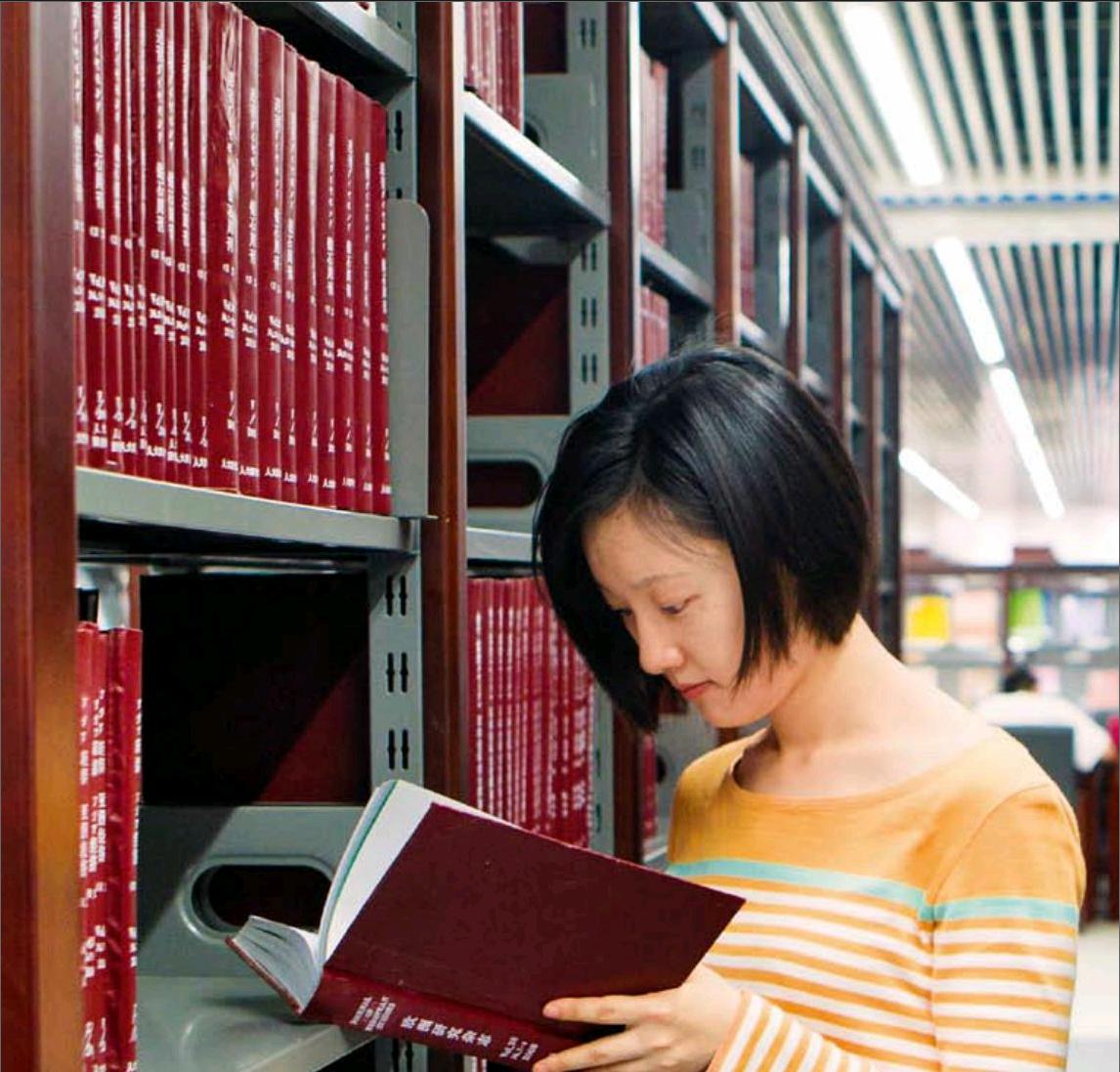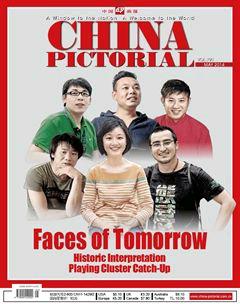Wang Dongping:The Wanderer
by+Wen+Zhihong



Wang Dongping, 24, is currently in the second year of a masters program at Renmin University. A poetry enthusiast, her favorite poet is Sharon Olds of the United States. “Why is she so brave while her readers are all cowardly?” some readers have asked. Before graduation, Wang decided to go to Germany for a doctorate.“Whats life about anyway?” she often asks herself. She frequently wishes to turn out like Sharon Olds: creative, cutting-edge, and perpetually searching for universal truths.
“Everything Will Be Ok in July”
Wang Dongping was born in late 1989 in Zhaofeng Village, Wanying Town of Dafeng City, Jiangsu Province. She is the only child of the family. The villagers primarily earn livings growing cotton.
Even though her hometown is in the underdeveloped northern region of Jiangsu, Wang received a good education. In 2001, her parents transferred her to the best primary school in town, where she realized she was different from her classmates – from the countryside. Many students had received arts education, including learning musical instruments, painting, and dancing. She regretted missing such experiences.
In 2002, Wang enrolled in a key junior high at a cost of 15,000 yuan. She stayed at the same school for high school without taking an examination due to her excellent academic performance.
During her spare time, she often visited an old bookstore across the street, buying old editions of classical writers such as Tolstoy, Dostoevsky, and Dickens. For a while, she loved Ice Fantasy by Guo Jingming, a controversial young Chinese writer, who published his first book in high school and went on to direct film adaptations of his work. Guos work is characterized by luxurious living. The intangible world of such stories made Wang struggle:“My mind was lingering in that pure, fancy world while I was eager to learn what was going on in the real world,” she recalls.
Wang Dongping worked very hard and scored second in her school in literary arts on the national university entrance exam. She chose to attend Renmin University in Beijing, far away from home. As a poetic and romantic young woman, she wanted to study international relations, which she assumed would be more social, profound, and important.
Seeking Subjectivity
For the first two years, Wang Dongping followed the curriculum like most of her classmates. She seldom raised her hand or spoke up in class.
As a junior, she could no longer keep quiet in class after meeting Professor Luo Tianhong, a scholar specializing in international strategies. Everyone was required to give a PowerPoint presentation, along with reading reports, essays and tests. Realizing that she had no choice but to improve, she began looking for small classes with fewer than a dozen students. “I became expressive in class after finding a lot of fun with teamwork,” she grinned.
For her essay topics, Wang listened to the advice of her tutor, Luo Tianhong, who suggested writing about Edward Palmer Thompson (1924-1993), a British historian, writer, socialist, antiwar activist, and one of the principal intellectuals of the Great Britains Communist Party. Few studies have been conducted on Thompson, categorized as a New Left British scholar in Chinese political science circles. Presently, only a handful of Chinese translations of his work exist. Wang learned as much as possible about his early political commentary in hopes of probing his later career and anything related to Chinas modern realities.
What influenced her most was his concern for mans subjectivity. “I was deeply impressed by Left-Wing intellectuals who discussed self-worth with great concern for man and society,” Wang illustrates. “I was not confident in college, so it was easy to become a follower. Now I can judge things for myself and have learned to think independently.”
However, Wang Dongping felt a divide between her own feelings and Thompson, who showed great sympathy for the public, risked himself to liberate laborers, and attempted to break rules that historys social strata had created.
Otherworldly
Wang Dongping became a student leader soon after arriving at college, but quit because she didnt like it. She began to broaden her vision by participating in various internships and working part-time jobs. She served as a volunteer, and interned with media and PR companies. After finishing a community survey conducted by the Institute of Social Science Survey of Peking University in March 2014, she joined a team working for the Innovation Center for Energy and Transportation to report on renewable energy resources for the EU.
Compared to her classmates with favorable family back- grounds, Wang Dongping has no one to rely on, nor ready-made resources and connections to use. She created every internship opportunity on her own. She has become bolder than the young countryside girl, though her appearance remains reserved. “I always wanted to be stronger so I could become a complete person and command respect.”
Before graduation, she decided to look for a job in media, hoping to become a war correspondent – a romantic and meaningful position. After learning more about the profession, she realized that such work “doesnt suit” her because its hard to excel without breaking news, which is usually manipulated by PR companies. She is apprehensive about hot trends, hoping to avoid the worldly. She prefers learning from more reliable sources such as observation and analysis.
Many from her village guessed that she would become an official when she left for college. Once in a while, she imagined what would happen if she lost her job. Whatever the situation, opportunities still exist for those with family connections. Her working friends complain that the only way to get promoted is to brownnose the boss.
“Im thinking of making myself stronger before looking for interests,” she explains. “You dont have to follow the rules you dislike when you can count on ability.”
After pondering her options more, Wang thought of her language skills and accepted an offer to attend a doctoral program at Free University of Berlin. She chose to focus on “compared
climate governance in central Europe” due to her interest in issues concerning rural areas, pollution, and the environment. Higher education might not necessarily bring realistic benefits to an ordinary family in rural China. On the contrary, her family must provide more financial support. Although she is uncomfortable with the extra strain she is putting on her family, she seems to have found what she was looking for: a path she chose herself.
Seeking Contrast
Wang Dongping eases away her leisure hours reading in the library, going to movies, and hanging out with classmates. She seldom wears makeup. She dresses simply and comfortably. Sometimes she applies her theories to daily life without noticing. For example, she realizes how consumer culture has eroded people when buying something in a shopping mall.
In her eyes, most of her peers are motivated, either through their own effort or due to easy access. She somewhat regrets that she hasnt met someone like “a flakey poet described in a book.”
“Everyone on campus looks the same,” she claims. “I dont see much difference because we all talk about the same things and share a lot in common. As a result, there is no diversity. Is this a good thing? I doubt it.”
She wants to see a new generation of college boys and girls, bold enough to blaze new trials, with a critical spirit. “I dont know whether Ill become vulgar in the future or suddenly crash on the road Ive chosen for myself.”
“My peers in Northern Europe are not as sad and depressed as Chinese students,” comments Wang. “And they stay hungry for knowledge.”
She read On Death and Dying by Elisabeth Kubler-Ross in high school, and believes she knows the meaning of loneliness and death. “I see it from the perspective of inheritance,” she explains.“No one is eternal, yet no one dies quick. You are only a phase, a footnote on the history of mankind.”

